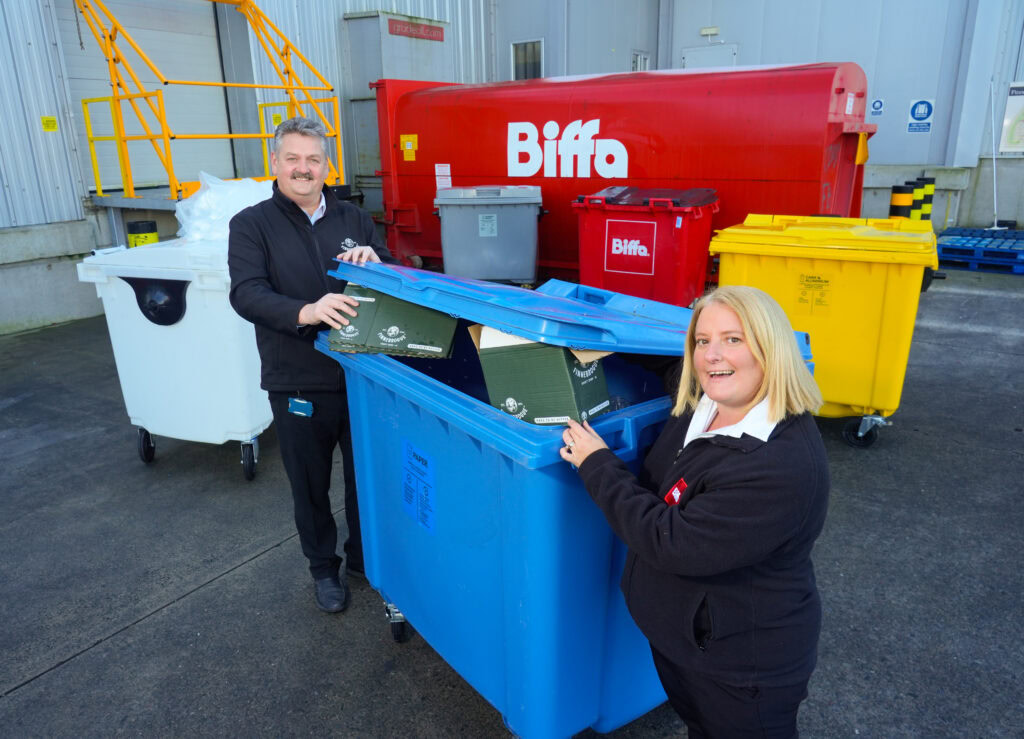
Mr Meacher, who died at the age of 75 on October 20 2015 after a short illness, was considered the longest serving recycling minister having held the job from 1997 to 2003 during the Blair government surviving a number of reshuffles. And, (as Ray Georgeson writes below), he played a part in preparation of the Waste Strategy 2000.
The MP for Oldham West, he was to build on early work by the Conservative’s John Gummer in the mid-1990s and went on to describe the UK’s level of recycling as “pathetically low” (see letsrecycle.com story).
In 2002 Mr Meacher said about recycling targets: “I am deadly serious about this. We have European targets to meet, and although of course it is highly preferable that solutions are local and community based, in severe cases the powers are there for directing the authorities, and in particularly difficult cases to remove management from the authorities concerned while still leaving the authorities liable to pay for the waste management.”
Corbyn
And, in 2002 he also reassured the Labour MP Jeremy Corbyn that home composting heaps did not need an Environment Agency licence.
In 2003 the then recycling minister said that was a very good chance of the UK hitting its recycling and composting targets in 2005 of 25% although 2003/04 targets might be missed (see letsrecycle.com story).
Mr Meacher said he was looking for local authorities to effectively achieve a doubling of recycling by 2003/04 to an average national figure of about 17%. And, he revealed that the latest Department of the Environment, Food and Rural Affairs figure for recycling across England stood at about 12-13% for 2002.
He gave Oldham as an example of good progress, in contrast to critical comments he has expressed about the authority previously.
“Oldham is a good example. I was worried about Oldham but now it has reached 5% and only a year ago it was almost nothing. The government has given money – Oldham is one of those authorities that received a grant and they think they can achieve their target.”
Controversial
Mr Meacher was also involved in the development of policy around waste electrical goods at a time when there were concerns about fridge mountains. He also had some controversial discussions with the packaging waste sector.

Environmental group Friends of the Earth, speaking after his death was announced, said: Friends of the Earth CEO Craig Bennett said: “We’re very saddened to hear Michael Meacher has died. He was a real champion of green issues who played a significant role in securing better protection for our environment and wildlife.
“As environment minister he really understood the issues, and fought hard for them – often in challenging political circumstances.”
Difference
Steve Eminton, editor of letsrecycle.com, said: “Mr Meacher made a difference partly by being in post for so long. He was able to encourage local authorities with funding and veiled promises of disciplinary action to try and push recycling rates up. He also benefited from the work of WRAP and an expanding economy although he failed to get as much of an increase in recycling as he had hoped. In terms of effort, he certainly put the time in to get out and meet people and stood his ground on a number of environmental issues.”
——————————————————————————————————————
Ray Georgeson, chief executive of the Resource Association, reflects on the life and work of Michael Meacher
Michael Meacher was appointed as Environment Minister in the new Labour Government that came to office in 1997. Blair made him a Minister of State in the newly created Department of Environment, Transport and the Regions (DETR), the new ‘super Ministry’ that was created in order to satisfy the requirements of the new Deputy Prime Minister, John Prescott, for a big department. A Ministerial survivor from the Wilson and Callaghan Governments of 1974-79, Meacher was expected by many to attain Cabinet status – he had the track record and pedigree – but was never going to fit with the ‘new Labour’ model and was parked in Environment as part of an attempt at balancing party interests in the Ministerial team.
He went on to make the most of the Environment brief which he tackled with zeal and passion. I was Director of Waste Watch at the time and I recall his appearance at the first meeting of the Parliamentary Environment Group in July 1997. He spoke to a packed and stifling hot Committee room, standing room only, having arrived late and breathless and proceeded to captivate the expectant audience with a passionate, unscripted coherent analysis of our key environmental challenges and his desire for change. It was a bravura performance that set the tone for his approach to the job.

Mercurial
The passion he had for the task sometimes made him a mercurial personality to work with, as civil servants could testify. He enjoyed strong relationships with green NGOs and could often be wary of advice that came from officials, going as far as organising private home gatherings of NGOs to help him shape his thinking and act as a counterpoint to the official advice. He commanded the detail of his brief, had a questioning and challenging approach but always did this with great courtesy and respect. Sometimes the machinations of the new Labour regime confounded him and he openly expressed his frustrations. No.10 wasn’t a fan, which is probably partly why the green groups admired him so much!
He was well aware, however, that he had reached the limit of his political influence in the Blair Government and so sought to make the most of the brief he had been given while he could. It is a testament to his abilities that he managed to stay in the Environment job for six years, making him one of the longest serving Ministers with the recycling brief in modern times (only bettered in terms of length of service by Richard Lochhead in the Scottish Government).
Waste Strategy 2000
He was a key element in the team that established Waste Strategy 2000 that set statutory recycling targets for local councils for the first time and also established the Waste and Resources Action Programme (WRAP) which he launched jointly with DTI Minister Patricia Hewitt in November 2000, just months after the strategy was established. After many years of low-key revisions of waste strategy laden with voluntary approaches and aspirational targets, Waste Strategy 2000 was a major change of tack and was the foundation for the expansion of household recycling collections and the acceleration of investment in the recycling sector that led to a fourfold increase in recycling in the decade that followed.
His most acknowledged and lasting achievement as Environment Minister, however, was the enshrining in law of the ‘right to roam’ in the Countryside and Rights of Way Act 2000. This was an issue very dear to his heart and it remains a real and valuable legacy to his period as Environment Minister and a lasting testament to his memory and lifetime of public service.








Subscribe for free